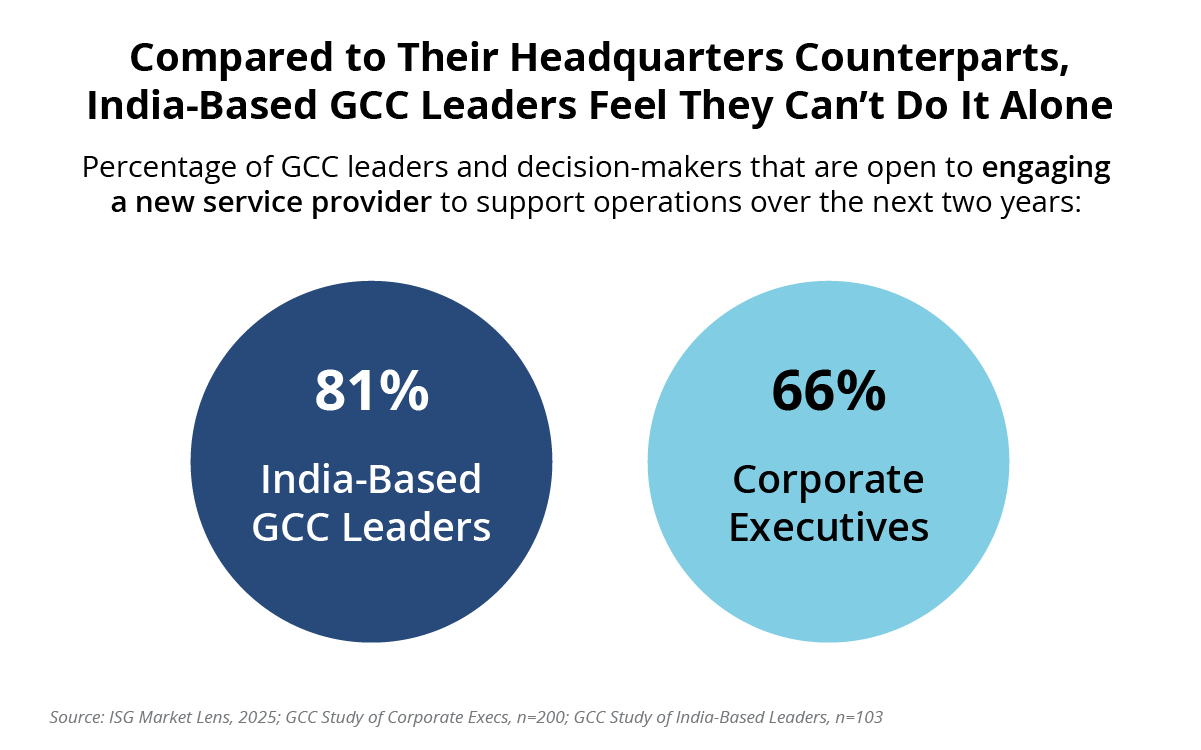Hello. This is Stanton Jones and Namratha Dharshan with what’s important in the IT and business services industry this week.
If someone forwarded you this briefing, consider subscribing here.
What You Need to Know
India-based GCC leaders recognize they can’t go it alone in a talent- and investment-constrained environment. Given this, they're more open than their peers at corporate headquarters to engaging a new service provider to fill these gaps.
Data Watch

Background
It’s been a few weeks since we covered the GCC topic. It remains red hot according to a recent roundtable we held with 30+ GCC leaders in Bangalore. While much of the focus of the discussion was on AI (no surprise), a good portion of it was focused on the technology ecosystem, and the critical role partners play, and will play, in the future success of a GCC.
GCC leaders are increasingly thinking about ecosystem partnerships, smart outsourcing, co-creation versus contracting and build-versus-buy decisions. In our view, most India-based GCC leaders recognize the reality of the situation: talent is too constrained and cost pressure is too high to not engage service providers in their operations.
The data in our two most recent GCC studies confirm what we heard on the ground with India-based GCC leaders.
The Details
- Over 80% of India-based GCC leaders are open to engaging a new service provider over the next two years.
- That’s in comparison to just over 60% of corporate executives with decision-making responsibility for their GCC.
- A similar gap holds true when it comes to changing existing providers to improve operations; 75% of GCC leaders are open to this while just under 60% of corporate execs are.
What’s Next
Over the last six to 12 months, we’ve seen many service providers develop new go-to-market initiatives and strategies focused on GCCs. My colleague Namratha Dharshan covered the scope of these services in detail on the 1Q25 Index call here.
We expect this provider ecosystem to strengthen further as enterprises grow their GCC presence and – at the same time – as headquarters increasingly view their GCC as a strategic hub.
And, while alignment between the GCC and HQ remains a challenge, over time, GCC leaders are likely to have more autonomy to make decisions on the ground about how to best accomplish corporate goals.
